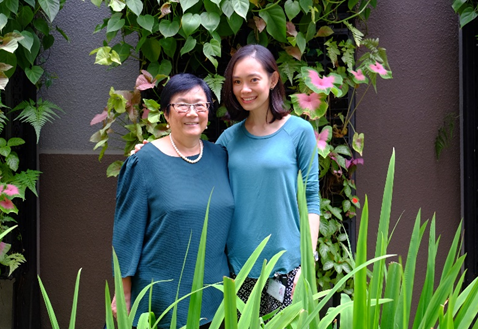
Pre- Renal Transplant Coordinator – Ms. Tee Ping Sing
What is your role in post renal transplant?
I have been with the Renal Transplant team as a pre-transplant coordinator since 2007. A pre-transplant coordinator plays an important role in the coordination of living and deceased- donor kidney transplant. Prior to a living donor kidney transplant, the matched donor and recipient would have to undergo a series of evaluations. We will first counsel and provide both the donor and recipient with important information pertaining to the transplant and ensure that they are well- informed when making decisions related to the procedure. They will then be assessed by a multidisciplinary renal transplant team which comprises of nephrologists, medical social worker, psychologist, surgeons, and cardiologists to evaluate their suitability to undergo a kidney a transplant. Lastly before the transplant, both the matched transplant donor and the recipient will be evaluated for their ethical eligibility by a transplant ethics committee consisting of an independent medical doctor, a lawyer, and a layperson. In all, the process of a living donor transplant can take up to 6 months and all the evaluation sessions will be planned by the pre-transplant coordinator.
Whenever there is a potential deceased kidney donor, we will immediately notify a suitable recipient from the waitlist which is also known as the National Transplant Registry System. Similar to living donor transplants, patients with renal failure will undergo the series of eligibility evaluations before they can be placed on the waitlist to receive a renal transplant. Over the years the waitlist has built up to 350 patients and the typical waiting time is about 9 years. I have always felt blessed to be the person bringing the good news of available donor to these recipients.
This is my 11th year with the team and my role has expanded. I am now also involved in quality improvements projects with the aim to provide better services for renal transplant patients and streamline the process of transplant to benefit more patients.
What does the job mean to you?
Before my current role in renal transplant, I am fortunate to have experienced the coordination of deceased donor organs donation as well. My experience with these two roles allowed me to appreciate how a transplant is coordinated to save a life. I always see hope and the unconditional love in the eyes of the living donors and recipients. In the case of the cadaveric donors, the donation of organs brings closure to the next-of-kin and hope to the recipients that I have been caring for. I can never be more honored to be their 'messenger'.
"It's all about love. We try our best to coordinate every transplant, while the unconditional kinship we see in each donor, recipient, and kin is what made us so rooted in the job."
Post- Renal Transplant Coordinator – Mdm Lu York Moi
What is your role in post renal transplant?
I joined the renal transplant team back in January 1995 as a post-transplant coordinator. The role focuses on caring for and the educating of our kidney transplant recipients. Post-transplant patient care involves a multidisciplinary team of transplant professionals and a coordinator's primary role is to be the link between the different teams to follow-up closely on the well-being of the patient. Secondly, a coordinator is also involved in counselling and educating the patient on post-discharge planning and their post-transplant care regimes to prepare them for their return home. Our job never ends even for patients who have received their transplant several years ago.
In a nutshell, a post-transplant coordinator provides continuity of care for the periods between inpatient admissions and outpatient visits post-transplant. We also serve as the main point of contact between the hospital and the patient or their family members. Patients contact us about almost any problems they face, so it is important for us to establish a healthy relationship with them. It allows us to assist them at any time, about any issues and this connection becomes their normal routine as we make sure they are well while they practice independence.
Currently in my 23rd year with the team, I have taken up more supervisory and administrative roles to enhance quality improvement and staff training and development.
What does the job mean to you?
In this role, I am able to appreciate that our relationship with our patients is an arrangement that goes beyond medicine. The most satisfying part of my job is being able to congratulate our patients on their new lease of life after a successful transplant. Witnessing our patients regain their health is heartwarming and rewarding and I am proud to play a part in their lifetime care.
Share one memorable experience or milestones achieved.
I reflect on how organ transplant saves many lives each year. The procedure is however is only the beginning of a new life journey for the recipient – a journey that I am proud to be part of. I've always shared with my staff that once we have a patient, we have them for life. This is the reason why I am inspired to impart all the knowledge I've gain on my journey as a transplant coordinator to my younger colleagues. Having nurtured and developed the skills of my younger colleagues is one of the most important milestones I've achieved in my career thus far.
"Once we have a patient, we have them for life. It's not my job, it's my passion"
Contributed by














 Get it on Google Play
Get it on Google Play